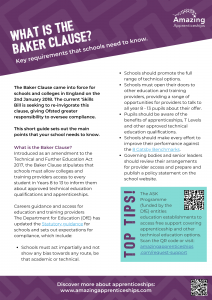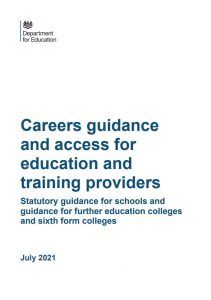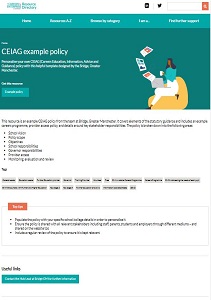What is the baker clause?
Introduced as an amendment to the Technical and Further Education Act 2017, the Baker Clause stipulates that schools must allow colleges and training providers access to every student in Years 8 to 13 to inform them about approved technical education qualifications and apprenticeships.
The Baker Clause came into force for schools and colleges in England on the 2nd January 2018. The current ‘Skills Bill is seeking to re-invigorate this clause, giving Ofsted greater responsibility to oversee compliance.
This page sets out the basics of what you need to know to ensure that your school or college remains compliant with the legal duty.
Careers guidance and access for education and training providers
In July 2021, the Department for Education (DfE) updated the Statutory guidance for schools and sets out expectations for compliance, which include:
- Schools must act impartially and not show any bias towards any route, be that academic or technical.
- Schools should promote the full range of technical options.
- Schools must open their doors to other education and training providers, providing a range of opportunities for providers to talk to all year 8 – 13 pupils about their offer.
- Pupils should be aware of the benefits of apprenticeships, T Levels and other approved technical education qualifications.
- Schools should make every effort to improve their performance against the 8 Gatsby Benchmarks.
- Governing bodies and senior leaders should review their arrangements for provider access and prepare and publish a policy statement on the school website.
What will ofsted be looking for?
Ofsted has updated its school inspection handbook to strengthen the focus on careers guidance, including by clarifying that inspectors will always report where a school falls short of the requirements of the provider access legislation (Baker Clause) as well as considering how it affects a school’s inspection grade.
What are the governing body expectations?
Every school should have a member of their governing body who takes a strategic interest in careers education and guidance. Furthermore, they should ensure that their school is meeting the statutory duty that all students are aware of the full range of academic and technical routes available to them at each transition point.
The governance handbook provides information on governors’ other legal duties, such as having a named Careers Leader, a Provider Access Policy and that this is published on the school website.
quick checklist for schools
Use this checklist to ensure that you are aware of the main requirements for your school.
- Identify a named Careers Leader.
- Create a Provider Access Policy Statement setting out the opportunities for providers to visit the school and the process to request access.
- Publish the statement on the school website.
- Review (annually) the effectiveness of the arrangements for your school and update your approach as appropriate.
The Careers & Enterprise Company has published a helpful example policy. - Ensure your governing body are aware of their statutory duty (see below guidance and checklist)
Useful Resources
More Information
Visit The Careers & Enterprise Company for free resources, training & tools for Careers Leaders.
Click Here






